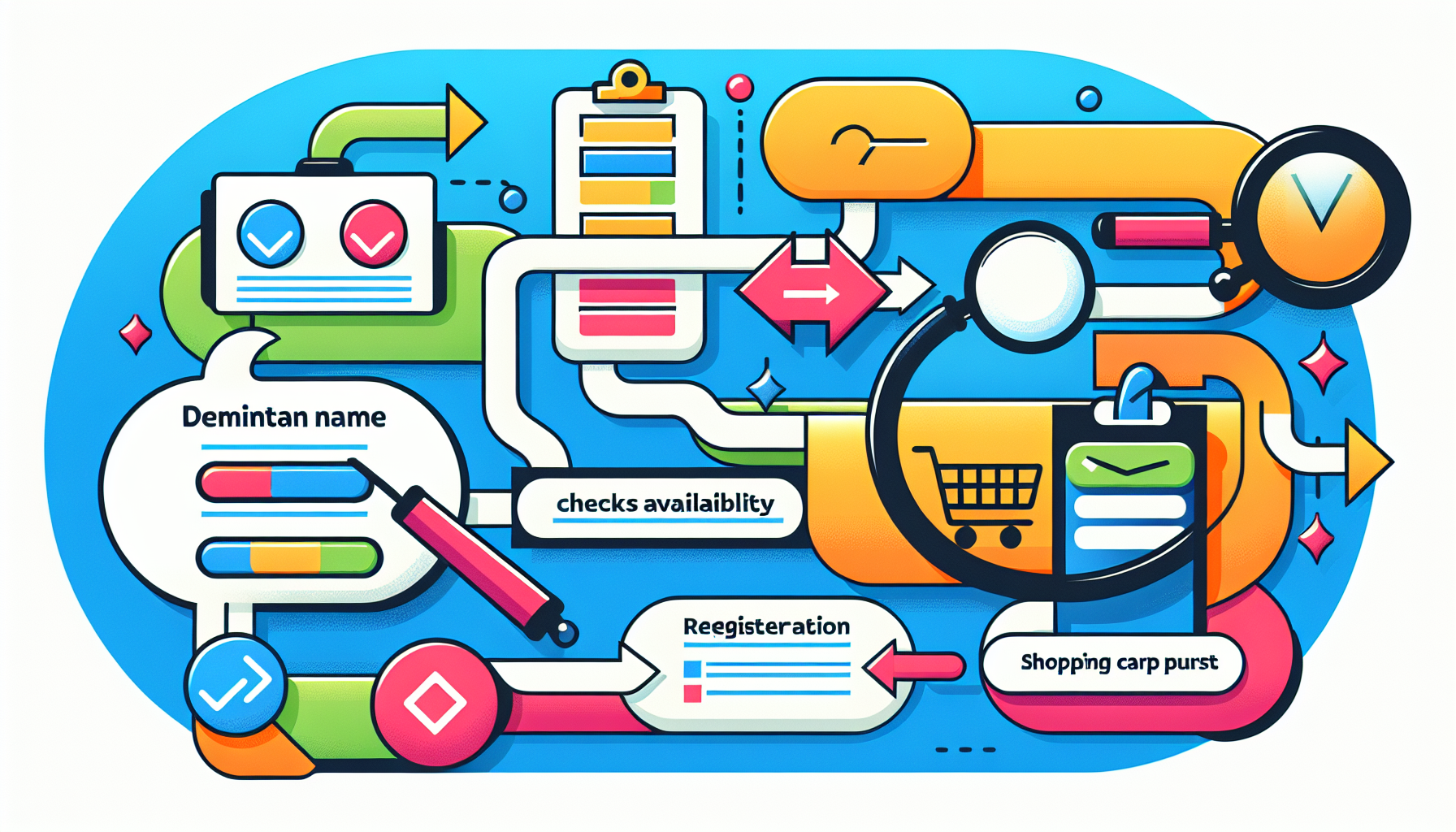Buying a domain name is one of the most important decisions you’ll make for your online presence, yet the process can feel overwhelming with 2,400+ ICANN-accredited registrars, hundreds of domain extensions, and pricing that ranges from $2/year to millions of dollars. This ultimate guide walks you through every step: choosing a short, brandable domain name that incorporates relevant keywords; selecting the right TLD for your market; finding available domains or acquiring taken names through brokers; completing registration with proper security settings; and protecting your investment with WHOIS privacy and SSL certificates. Whether you’re registering your first domain or acquiring a premium name for an established business, this guide provides the expert framework to make a smart purchase.
Buying domain names – premium or high-value ones in particular – is a process. In this guide, NameExperts.com Director Joe Uddeme helps you navigate all the steps.
Want to buy domain names? You’re not alone! Millions are bought and sold every year.
When you know how buying domain names works, a potentially overwhelming process becomes a whole lot simpler – although certain complexities enter the equation when you are choosing a seemingly unavailable premium domain name that is owned by someone else.
However, the principles of domain buying are reasonably straightforward. This article will guide you through picking a great name, finding out if it’s available, and registering it. Let’s get started on setting up your online presence!
Key Takeaways
- Selecting the right domain name is essential for online presence, emphasizing simplicity, relevance, and the inclusion of keywords for better SEO.
- Using domain search tools, including domain checkers and generators, facilitates finding available and creative domain names efficiently.
- Securing your domain promptly after availability verification is crucial, and protecting it with privacy measures and SSL certificates enhances security and trust.
Choosing the Perfect Domain Name

Choosing the right domain name is crucial for your online presence. It should reflect your brand’s essence, enhance recognition, and be memorable, unique, and indicative of your business’s focus.
Key aspects to consider when selecting a domain name include simplicity, relevance, and geographical appropriateness.
Keep It Short and Simple
Short and simple domain names are easier to remember and use. Ideally, they should be concise and easily pronounced, preferably under three words long. For instance, “example.com” is easier to remember and type than longer alternatives.
Avoid hyphens, numbers, or unconventional spellings as these can confuse users and reduce memorability. Straightforward domain names are user-friendly and stand out in a crowded online space.
Include Keywords and Brand Name
Adding relevant keywords to your domain name can boost SEO and make your site more discoverable. For example, a bakery could benefit from including “bakery” in its domain name.
Including your brand name within the domain fosters recognition and drives traffic, reflecting the core of your business and solidifying your online presence.
Consider Local TLDs
Local top-level domain (TLDs) like .ca for Canada or .co.uk for the United Kingdom can be advantageous for businesses targeting specific geographic audiences. These extensions enhance perceived credibility and align with local search behaviors.
Some local TLDs have specific registration requirements. If you already have a domain registered elsewhere, you can connect it to your site. Securing multiple similar domains (e.g., .com, .net) can protect your brand from competitors.
Using a Domain Search Tool
Checking the availability of your desired domain name is crucial. A domain finder and domain search tools help find available names and suggest alternatives if your preferred website domain name search is taken.
Using a domain search tool helps you act quickly to secure your desired domain name before someone else does.
Domain Checker Tool
A domain checker tool is essential for quickly determining the availability of your desired domain name across various TLDs and extensions, providing real-time results to help you secure the perfect domain.
Incorporating relevant keywords into your domain name can boost SEO, enhancing site visibility. Domain checker tools streamline the process, making it easy to check availability and avoid trademark conflicts.
Generate Domain Name Ideas
If your preferred domain name is unavailable, domain name generators can help you find creative alternatives that reflect your brand’s identity. These tools often use AI to generate unique domain names based on your input.
Domain name generators can save time and provide inspiration, especially when you’re stuck. By exploring different combinations and extensions, you can find a unique domain name that suits your business.
Registering Your Domain Name

After finding the perfect domain name, the next step is domain name registration with a domain registrar. This ensures you own the unique address for your website, preventing others from using it.
The process involves checking availability, securing the domain quickly, and understanding the various domain extensions.
Check Domain Availability
Before registering a domain, check its availability. Squarespace’s domain search tool performs this check efficiently, providing real-time availability results across various TLDs and extensions.
Ensure the domain name is free from trademark conflicts to avoid legal issues, securing a unique and legally compliant web address.
Secure Your Domain Quickly
Act quickly to secure your domain name, as desirable names can be registered by others almost instantaneously. Use the domain search tool to act fast and prevent competitors from taking your ideal domain.
If your preferred domain name is unavailable, use a domain name generator to quickly come up with unique alternatives. This ensures you can secure a great domain name without delays.
Understanding Domain Extensions
Choose the right domain extension to target your audience effectively. If the .com version is taken, consider country-specific extensions like .co.uk or .us to reach local markets.
Squarespace’s domain checker tool helps you explore various domain extensions, ensuring you find the perfect fit for your business. New TLDs often have a higher likelihood of availability for desirable domain names.
Free Domain Registration Options

Securing a domain name doesn’t always have to come with a cost. Some services offer free domain registration, beneficial for startups and small businesses looking to establish an online presence without breaking the bank.
Free Domain with Hosting Packages
Many web hosting services offer free domain registration for the first year when you sign up for their hosting packages. For example, Wix provides a one-year free domain voucher with its Premium plans, combining hosting and domain registration seamlessly.
Choosing hosting packages that include free domain registration can be a cost-effective way to get your business online while securing a great domain at a great price.
Redeem Domain Vouchers
Domain vouchers often come with premium service subscriptions, allowing you to register a domain at no additional cost. Check if your subscription includes a domain voucher by logging into your account and reviewing your benefits.
To redeem a domain voucher, navigate to the domain registration section of the provider’s site and enter the voucher code during checkout. Be mindful of expiration dates and follow the specific instructions for a smooth redemption process.
Privacy and Security for Your Domain

Protecting your domain’s privacy and security is crucial. Measures like WHOIS privacy protection and SSL certificates safeguard your online identity and build trust with your audience, preventing unauthorized access and ensuring data integrity.
WHOIS Privacy Protection
WHOIS privacy protection keeps your personal information confidential by shielding your contact details from public access, reducing the risk of spam and identity theft. Squarespace and other providers offer free WHOIS privacy for eligible domains, automatically protecting your data.
Using WHOIS privacy protection enhances online security and protects your personal information from exposure. Anonymity when purchasing a domain name is very important for some buyers.
SSL Certificates
SSL certificates secure data transferred between your website and its visitors by encrypting it, ensuring privacy and protection from unauthorized access. Squarespace provides free SSL/TLS certificates from Let’s Encrypt, making it easy to secure your domain.
Implementing SSL certificates protects your data and enhances your website’s trustworthiness, fostering user confidence.
Transferring an Existing Domain
If you already own a domain but want to switch providers, transferring your domain is straightforward.
Transferring consolidates your domain management and often comes with added benefits like support and potential savings.
Easy Transfer Steps
Transferring a domain can be done in a few clicks. Many providers support the transfer of up to 50 domains at once, simplifying the management of large portfolios and ensuring efficient transfers without hassle.
Retaining Registration Time
A key benefit of transferring a domain is that the remaining registration time is preserved, meaning you won’t lose any time you’ve already paid for, and it will be added to the new registration period.
Understanding this process ensures continuity and avoids interruptions in your domain management.
Benefits of Professional Email Addresses
Linking a professional email address to your domain enhances your business’s credibility and communication, portraying a professional image and building trust with clients, which is vital for successful business relationships.
Building Trust with Clients
A professional email address establishes a professional image and fosters trust with clients, setting the tone for business communications and reinforcing your brand’s credibility. Trust is fundamental in building long-term client relationships and maintaining a solid reputation.
Integration with Google Workspace
Integrating your professional email with Google Workspace offers enhanced credibility and seamless communication. Google Workspace provides a robust email solution with up to 100 email forwarding addresses, ensuring effective communication management.
Summary
In conclusion, securing the perfect domain name is a critical step in establishing your online presence. From choosing a memorable and effective domain name to understanding the importance of privacy and security, this guide has covered all essential aspects. By following these steps, you’ll be well-equipped to find, register, and protect your domain, ultimately enhancing your brand’s online identity.
Frequently Asked Questions
How do I check if my desired domain name is available?
To check if your desired domain name is available, utilize a domain checker tool from platforms such as Squarespace; simply enter the name and receive immediate availability results. This straightforward process ensures you can quickly determine if your preferred domain is free. A near-infinite number of domain names are still available; it’s the desirable ones that are harder to secure – which is where domain brokers come in.
What should I do if my preferred domain name is already taken?
If your preferred domain name is already taken, explore a domain name generator for creative alternatives or consider using different extensions and slight variations of your original choice. This approach can help you find an appealing and available domain.
Can I transfer my existing domain to another provider?
Yes, you can transfer your existing domain to another provider, and the process is typically straightforward, often requiring just a few clicks. Most providers also support transferring multiple domains simultaneously for easier management.
Why is WHOIS privacy protection important?
WHOIS privacy protection is important as it safeguards your personal information, minimizing the risk of spam and identity theft. Utilizing this service helps maintain your confidentiality online.
How does integrating with Google Workspace benefit my business?
Integrating with Google Workspace enhances your business’s credibility and communication through a professional email solution, providing effective management with features like up to 100 email forwarding addresses. This integration ultimately streamlines your operations and improves collaboration.
About the author
Joe Uddeme is Director and Principal of NameExperts.com, one of the world’s leading domain name brokerage services. He has overseen domain name sales and acquisitions totaling more than $150 million and is renowned worldwide as a go-to expert in buying and selling premium domains. Contact us at: [email protected]
Subscribe for More Domain Buying & Selling Advice
Need Help Buying the Perfect Domain?
Whether you're registering a new domain or acquiring a premium name from its current owner, Name Experts provides expert guidance at every step. Free consultations. No upfront fees for broker services.
Get StartedFrequently Asked Questions
For standard domain registration of available names, top registrars include Namecheap (affordable pricing, free WHOIS privacy), Cloudflare Registrar (at-cost pricing with no markup), Google Domains (clean interface, Google Workspace integration), and GoDaddy (largest selection with frequent promotions). For premium domains already owned by others, domain brokers like Name Experts provide expert negotiation and acquisition services. Your choice depends on whether the domain is available for registration or needs to be purchased from an existing owner.
Follow three core principles: keep it short and simple (under 15 characters, easy to spell and pronounce), include your brand name or relevant keywords (for both recognition and SEO), and prioritize a .com extension. Test potential names by saying them out loud, asking friends to spell them after hearing them once, and checking that multi-word combinations don't create unintended words. Verify trademark availability to avoid legal issues, and secure related extensions (.net, .org) to protect your brand.
You have several options for acquiring a taken domain. First, check if it's listed for sale on marketplaces like Sedo, Afternic, or Dan.com. If not listed, use WHOIS lookup tools to find the owner's contact information and make a direct offer. For valuable domains or when anonymity matters, hire a domain broker who can professionally negotiate on your behalf without revealing your identity. Use escrow services like Escrow.com for payment protection during the transfer process.
Yes, domain privacy protection is strongly recommended for every domain you register. Without it, your personal name, home address, email, and phone number are publicly visible in the WHOIS database, exposing you to spam, phishing attacks, identity theft, and competitor surveillance. Most registrars charge $10-$20/year for privacy protection, though Namecheap and Cloudflare include it free. There is no downside to enabling privacy -- it doesn't affect your website, email, or SEO performance.
Domain transfers between registrars follow a standard process. Unlock the domain at your current registrar, request an authorization (EPP) code, initiate the transfer at your new registrar by entering the domain and authorization code, confirm the transfer via email, and wait for completion (typically 5-7 days). Your remaining registration time carries over to the new registrar. Note that domains registered or transferred within the last 60 days are subject to ICANN's 60-day transfer lock and cannot be moved until the lock period expires.


